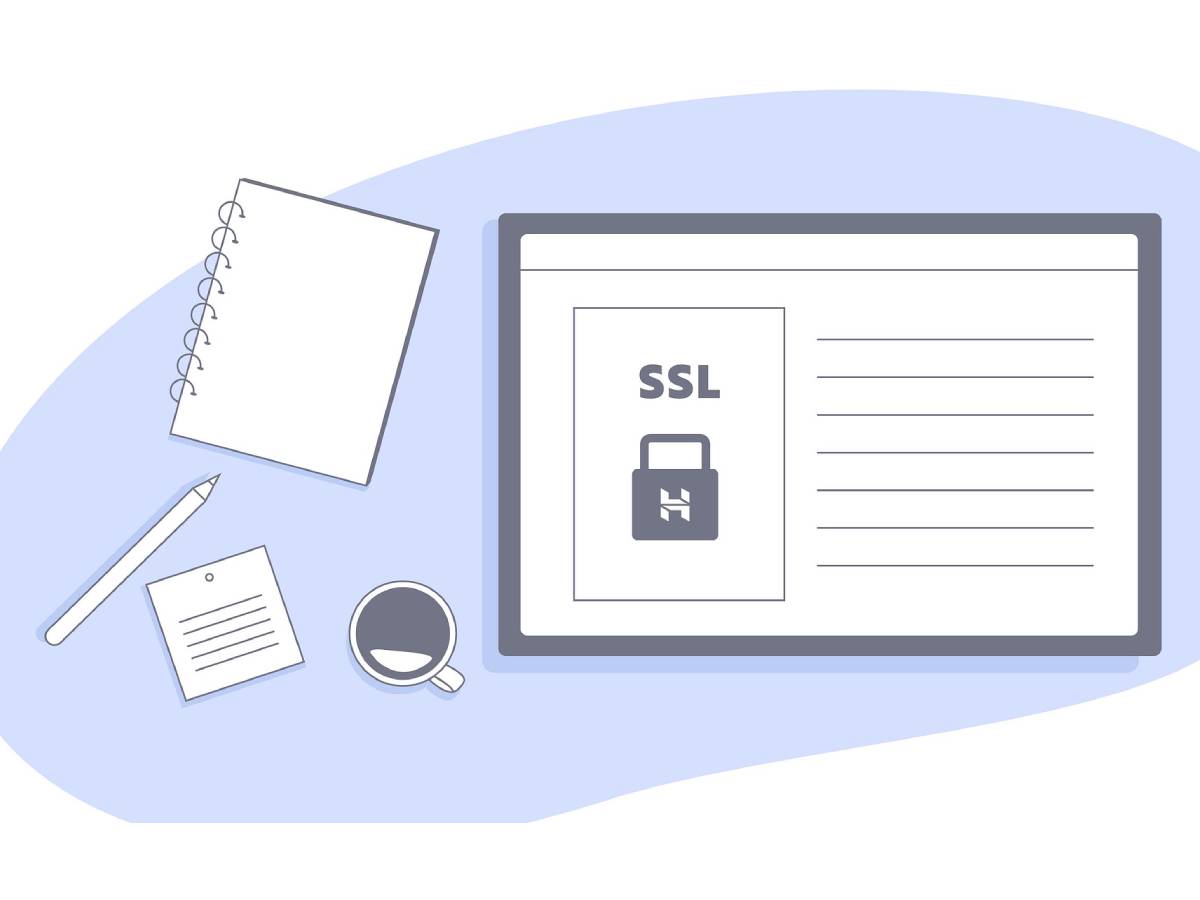The number of data-hungry cyber criminals seems to be growing inexorably. Unsecured corporate websites are a target for any threat actor. Company websites should be secured, particularly on which personal data is provided. The keyword, in this case, is SSL certificate. In the following article, we will tell you what the SSL certificate is, what it is used for, the consequences of not having a certificate and how you can get a certificate for your company website.
The days when company websites bored visitors for years as a rigid information medium are finally over. Today, corporate websites are more than just a “digital business card”. They are a marketing instrument, sales channel, service portal and tool for acquiring customers simultaneously – and, therefore, an essential basis for entrepreneurial success.
Nevertheless, professional and credible company websites are characterized not only by a modern web design, their user-friendliness and short loading times but also by their security.
Table of Contents
SSL/TLS Certificate: Definition!
An SSL/TLS certificate is a small data file that guarantees the individuality of a company website and encrypts all data connections between the browser and the domain on the web server.
The acronym SSL stands for Secure Socket Layer and is, strictly speaking, a legacy protocol used to encrypt plus authenticate sensitive and confidential data sent between an application such as a web browser and a web server. Certificates now work with the more modern and secure Transport Layer Security Protocol or TLS. In general usage and practice, however, SSL certificates are constantly being used to secure company websites and web servers with encryption technology.
Usually, SSL/TLS certificates are used to secure contact forms, login areas,
online payments, and other data transmissions.
Which SSL/TLS Certificates Are There?
To obtain an SSL/TLS certificate, companies must adhere to a certification authority responsible for the sale of SSL/TLS certificates through the Public Key Infrastructure Consortium (https://pkic.org), PKI for short. The institution for increasing data security in the network.
Website operators have three types of SSL/TLS certificates to choose from: the domain validation certificate, organization validation certificate and the extended validation certificate.
- Domain Validation Certificates: The SSL/TLS certificate, offered under the Domain Validation label, or DV for short, forms the lowest level of SSL/TLS certificates. This means that an assessment of the website operators when issuing an SSL/TLS certificate is not very comprehensive. Often, the certification authority sends an email message to the email address specified in the “WHOIS record” and asks the applicant to change a DNS record, for example, or to download a particular file onto its server to ensure control is signaled via the domain. Since the verification process can be fully automated, many do not consider domain validation certificates secure. Some browsers, therefore, mark a domain validation certificate specifically.
- Organization Validation Certificates: Organization Validation Certificates are one level higher. This means they are only handed out after thoroughly inspecting the operation. Website visitors have the opportunity to check the trustworthiness of the website in detail.
- Extended Validation Certificates: This type of SSL/TLS certificate is awarded according to stringent selection criteria and is the best security level. In addition to the website, the certification bodies check the associated company and the applicant.
- All SSL/TLS certificates are available for one domain or as a multi-domain solution (SAN certificates).
Cost: Free SSL Certificates Versus Paid SSL Certificates
If it is just a question of securing a company website, a free SSL/TLS certificate meets the requirements just as well as a paid one.
Nevertheless, there are some points in which free and paid certificates differ.
Validation Level: The encryption levels are the same for any SSL/TLS certificate. However, they differ in the verification process required. This means: SSL/TLS certificates with a higher security level are always subject to a fee.
- Validity: Most paid SSL/TLS certificates are valid for one to two years. On the other hand, free SSL/TLS certificates expire after 90 days at the latest. Therefore, companies that rely on free SSL/TLS certificates have to exchange them much more often.
- Domain affiliation: A free SSL/TLS certificate can always be generated exclusively for a particular domain to which it is linked. Paid SSL/TLS complete solutions also allow cross-domain SSL/TLS certificates, which can be used for multiple websites.
How Do I Know If a Site Is Reachable Over SSL?
A company website with this SSL/TLS certificate shows an “https” at the beginning of the Internet address instead of the usual familiar “http”. An extra “s” stands for “secure” and shows the website user that the extended encryption layer has been added to the Hypertext Transfer Protocol. In addition, protected connectivity can be indicated by the presence of a padlock icon or a green address bar.
Switching To Https Is Worth It!
Internet crime is still on the road to success. SSL/TLS certificates are increasingly essential to protect a company website from eavesdropping or sabotage. In addition, customers’ confidence is strengthened, which is related to the increase in standing. In addition, SSL/TLS certificates positively affect search engine rankings and support companies in complying with current legal regulations and prescribed requirements.

